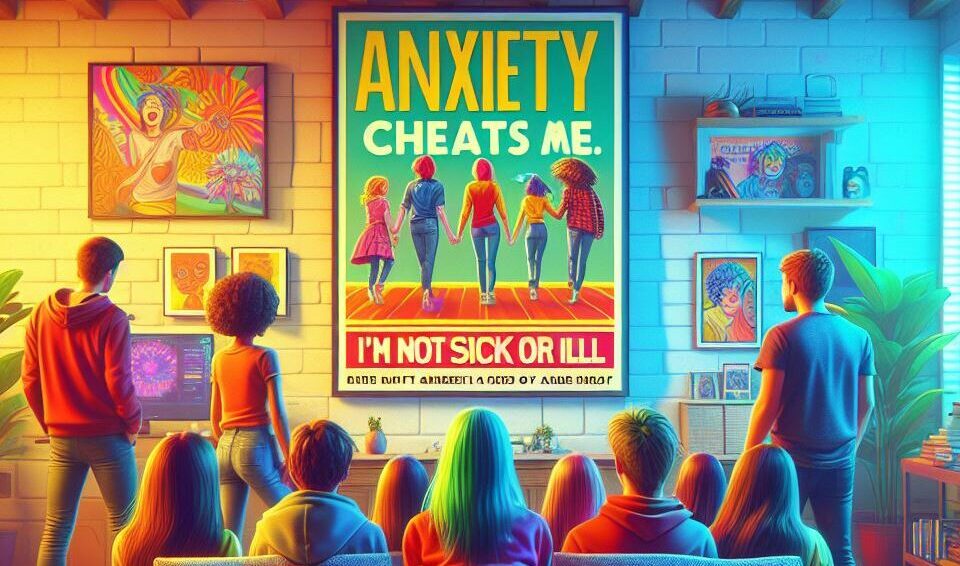
01. Anxiety is a bad idea

Repetition: A Core Learning Strategy
What is Irrational Anxiety?
We often hear that anxiety is an illness or disorder. However, that is not quite the case.
To put it simply, irrational anxiety is an extremely unpleasant feeling, not an illness, that only those who have experienced it can truly understand.
It’s a feeling that makes us incredibly nervous and fearful, leading us to worry about experiencing it again.
This fear causes us to think about it constantly, which in turn leads to experiencing it repeatedly. However, it’s important to understand that anxiety is not dangerous, it’s not a disease or a disorder. It’s merely a chemical response from our body, a reaction triggered by our thoughts about anxiety.
But anxiety is more complex than that. Irrational anxiety, for instance, is a symptom indicating that something isn’t right in our lives. It’s not the problem itself, but a signal that we’re facing challenges in life. These challenges could be due to countless reasons and are highly individual, so we won’t delve into them here.
Anxiety can be defined in many ways, ranging from mild symptoms to severe, recurring anxiety attacks. However, it’s not a diagnosis of a disease, as many people mistakenly believe. Instead, it’s a diagnosis of symptoms. A condition. A body state. This condition is created by our emotions when we encounter potential danger, causing us to act automatically to avoid it.
An anxiety attack is an extremely unpleasant state where you’re unable to be yourself due to the multitude of symptoms experienced all at once. In essence, it’s the natural state that prepares us for flight, freeze, fight, or adaptation when confronted with an enemy or any form of danger. This is what we humans refer to as anxiety, or more accurately, rational anxiety.
There are two types of anxiety: rational and irrational. We focus on irrational anxiety, as it’s the type we can work on to avoid. The term ‘irrational’ can be loosely translated as ‘without reason’ or ‘without logical meaning’. In other words, it’s anxiety without a discernible cause or anxiety that doesn’t make logical sense to experience when there’s no danger present.
It’s crucial to distinguish between rational and irrational anxiety, as the former always has a visible cause, while the latter never does. However, both types are equally unpleasant to experience.
When people talk about having anxiety or being anxious, they’re usually referring to irrational anxiety. However, it’s problematic to refer to anxiety in this way, as it turns it into something negative and makes it harder to overcome. Instead, it’s more helpful to understand that you’re not defined by your anxiety, but simply experiencing it.
Once you accept that you’re not anxious, but merely experiencing irrational anxiety, it becomes easier to overcome it. After all, anxiety is just a feeling, like joy, anger, or sadness. The real issue arises from our thoughts about the discomfort of the feeling, which is what needs to be addressed.
Remember, experiencing irrational anxiety doesn’t mean you’re ill, either physically or mentally. It’s the belief that you’re anxious all the time that makes it difficult to overcome. Therefore, changing this belief is key to becoming anxiety-free.
Much of what we describe here might be new to you, and you may not agree with everything. However, this doesn’t mean it’s incorrect, but rather that it challenges your current beliefs about anxiety. So, don’t give up just because you disagree. If you have doubts about that statement, consider whether your current beliefs about anxiety have helped you overcome it. If not, it might be worth considering a different perspective.
In essence, our thoughts create our feelings, and those feelings create new thoughts. Everything we do generates thoughts and feelings, leading to reactions and behaviors.
Lastly, it’s important to note that this does not replace medical recommendations and treatments. Always follow your doctor’s advice and seek out recommended professionals, such as psychologists or psychiatrists.”




